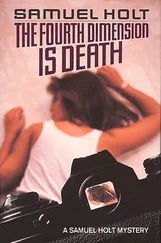“There are some obvious choices,” I told Rose. “I’m darned upset that I didn’t keep up with my Arabic lessons, which I took all the way through first year in college. I couldn’t understand those long sections of the Qur’an. And anyhow, that course of study wasn’t considered patriotic by the guys in the fraternity. They were primarily interested in automobile racing. Mostly I regret failures in the sack. What about you?”
Jim thought carefully, and then he said, suit to suit, “There are the men I killed.”
“Look, Jim, you don’t want to be talking about that.” Jim flipped up the visor again. He had a sort of glazed look. “Get yourself together, because we’re about to open that hatch. You need to be completely ready.”
“I trained for this. I have traveled millions of miles from my home just to do this.”
“Good.”
He gave the lever on the hatch a turn and called down through the open frequency. “Preliminary hatch, and that’s a Code One.” Which meant that José was obliged to stay where he was and monitor us. Once the air lock was open, the hatch was exposed to the vacuum of space, and it was a protocol of the mission that under those circumstances someone always had to stay with the ship. I hoisted myself into the air lock behind Jim Rose and closed the hatch that led back into the cabin. Then Jim reached the second door. The B hatch. His voice crackled from the intercom, “Feel like you’re seeing the faces of the people you lost? In the stars?”
I said: “I calculate my pay every day. I think about how much money I’m saving by being up in a capsule. I haven’t eaten out, I haven’t bought a new jet pack, I haven’t gone on any expensive vacations.” And yet in my heart, I knew what Jim was saying. There was a raw, inconsolable quality about the void of these expanses. Take the case of Jim Rose: I knew that his four kids were the most important thing in his life, and that his unquenchable need to explore the universe amounted to a contradiction. He was a family man, and he’d never read a novel in his life. But up here he was one hundred percent daydreamer. He went careening from one strangely grandiose non sequitur to another.
The analogy NASA made about our journey was that it was like trying to get a basketball to go through a hoop from 36 million miles away. If so, the mission navigators must have been exceptionally good hoops players. As the hatch opened, the enormity of our journey was manifest to those of us on board the Excelsior . We had already seen, and would continue to see, things that had been seen only by robots and satellites. The novelty of limitlessness was our daily bread. As the hatch opened, there was an emptying out of words like here and there , and down and up , and here and back , and before and after . Jim Rose stuck his leg out into the soup of stars and nebulae, of Monaco 37 and like-minded relatives, of dark matter, of black holes, of creation’s indifference. I could hear his breathing, and his breathing was fast. He was gasping. He attached the tether from his space suit onto the buckles on the surface of the Excelsior , and he arced outward gently, slowly, centimeters at a time. I watched him drift. He was a citizen of Earth , a man nowhere near where he belonged but who was here in this place nonetheless. After his brief but interminable drift, his metallic boots clunked soundlessly against the surface of the hull.
“ Excelsior , I’ve exited the craft, and I’m heading for the solar array, as requested.”
“That’s a roger,” José said from indoors. “Houston, you receiving?”
“I’ve seen some pretty night skies in my day,” Jim remarked, “but this beats them all. Jed, you’re clear to proceed.”
There was a moment when I didn’t know if I wanted to proceed, when I thought that maybe the human conception of space travel was just so much froth, like elves and dragons but more expensive. An intoxicant meant to distract the miserable inhabitants of Earth from their circumstances. Why go? Why go out there? There was no such place as space, because a location couldn’t be an absence of locations, and the vacuum wasn’t a true vacuum, lest it should subsume into it even the notion of vacuum. These latitudes just couldn’t be as mysterious and ancient as they plainly were. The night sky was a fresco that one of the old masters painted on the ceiling of the world, back in the quattrocento! I didn’t want to go wading in the real thing. But before I gave in to my adolescent anxiety, I was out , and here is how slow things go in space, kids — in the time it takes you to read this sentence, I had drifted only a foot or so. It’s not like there were tailwinds! In a minute or so I could see my foot approaching the surface of the craft. You could do several flips, out there, and it would be nothing, but then you would be well out of control and could go spinning off, on the tethers. And who knew, really, how tethers behaved at temperatures approaching absolute zero.
And yet, since by Terran nightfall you were meant to have footage of us, out here, attempting to work a screwdriver and other power tools with these clumsy gloves, we had to keep moving. NASA had us on their leashes too. It was a while before Rose and Richards, the Martian voyagers, stood at the far end of the Excelsior , listening to some Earth-bound engineer remind us how to effect the repairs.
It wasn’t until we were hunched down over the solar panels and fiddling with the electricals that Jim mumbled, “I’m not trusting him either; I’m not trusting José.” If Jim Rose was worried, well, there was real cause for worry.
“Last night, before you woke,” Jim said, “he got some kind of transmission from Mission Control. I just happened to see it appear in his in-box. What would have happened if I hadn’t? The substance of the transmission was this: we’re changing the landing coordinates. Does that seem sensible to you? We train for three years to land on the southern pole, we announce to the world that we’re going to land there, because we’re going to do experiments with water. Water, water pressure, water freezing and evaporating. Tests and more tests. That’s the whole purpose of landing on the poles, right? We have to have enough water to last twelve months, we hope, and most of the planet is completely barren. And suddenly there’s this plan, that José hasn’t even mentioned yet, to try to see if we can’t fly the ultralights down into the canyon.”
“The canyon?”
The canyon he referred to, in case you haven’t heard, is the biggest known canyon in the universe, the Valles Marineris, which is 3,117 miles long (as far across as North America), 75 miles from wall to wall, and, get this, over six miles deep. It makes the Grand Canyon look like a surface scratch.
“That’s what the transmission said.”
“Did you get confirmation? From Mission Control?”
We had the mission directives on pocket-sized electronic clipboards. We got them as digital downloads. Normally this stuff came in the evening, so we could talk it over while eating. The few moments when we were all awake. Also: we needed something to do at mealtime because the food was so bad.
“Why would we have such a substantial change of plans at this point? And why weren’t we warned about the possibility?”
“And how the heck are we supposed to get out of the canyon once we’re in it?” I asked. “Do we have enough fuel for these trips in the ultralights?”
“No details, obviously.” He kept it all to a whisper, suit to suit.
“He’s pretty good at letting us know when he doesn’t have to do his regular rotation on the laundry duty or waste reprocessing. That’s about all he’s good at. There’s some kind of parallel mission track going on here.”
Читать дальше












